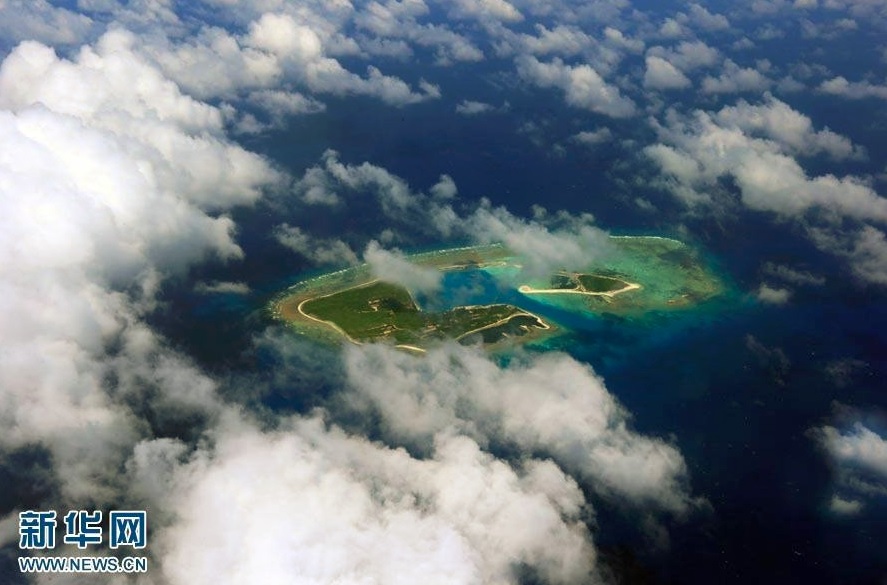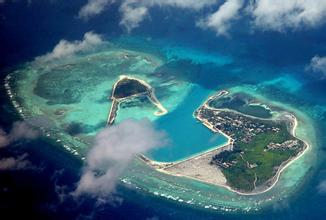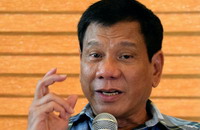In ignoring the verdict on the South China Sea, Beijing is following precedents by great powers as no permanent member of the UN Security Council has ever complied with a ruling by the Arbitral Tribunal on an issue involving the Law of the Sea.
Arbitration award
CHINA’S resolve on its sovereign claim to most of the South China Sea appears to harden after an international tribunal ruled against this new superpower in Asia.
On Tuesday, the international arbitratry at the Hague backed the Philippines’ argument that there was no legal basis for Beijing’s maritime claims.
The tribunal dismissed China’s vast claims in the vital waters, known to have vast oil and gas deposits.
From the start, China has insisted that it will ignore the tribunal decision.
It has also warned that increasing pressure on the issue could turn the resource-rich waters into a “cradle of war”.
Three days following the tribunal’s ruling, China’s state media reported that China may build mobile nuclear power plants in the South China Sea.
“China will soon start assembling its first maritime nuclear power platform and is expected to build 20 floating nuclear power stations in the future, which will largely beef up the power and water supplies on the South China Sea islands,” reported Global Times on Friday, citing China National Nuclear Cooperation (CNNC). (http://www.globaltimes.cn/content/994578.shtml)
The state-owned Global Times added that “marine nuclear power platforms will be used” in the islands and reefs of the Spratly chain in the internationally contested sea.
And two days before the tribunal announcement, China had enhanced its military presence under the directive of President Xi Jinping.
Meanwhile, Chinese Premier Li Keqiang told visiting Japanese Prime Minister Shinzo Abe that Tokyo should stop “hyping up and interfering” in the South China Sea issue, according to the official Xinhua News Agency.
Li: Tokyo must respect China's territorial sovereignty
https://youtu.be/HMP0a_ODVGU
Japan is not a state directly involved in the South China Sea issue, and thus should “exercise caution in its own words and deeds, and stop hyping up and interfering” in the issue, said Li.
Commenting on the decision of the tribunal in Hong Kong on Friday, a judge of the International Court of Justice (ICJ) said the award on the South China Sea arbitration had the effect of “pouring fuel on the flame”.
Xue Hanqin, while addressing a colloquium in Hong Kong, said: “Anyone can easily tell that this award will certainly aggregate the dispute between China and the Philippines, aggregate the current military tension between China and the US and definitely aggregate tension in the region.”
Indeed, countries in this region are keeping a close watch on the situation – paying particular attention to the actions of the United States, Japan and China.
The ruling of the tribunal – the legality and decision which has been questioned by academics from the East and West, has indeed caused an unprecedented level of tension in this part of the world since the Second World War.
This is despite the repeated assurance by China that it still prefers to resolve the disputes in the South China Sea via consultation and peaceful talks among the parties laying claims to the islands – which include Brunei, Malaysia, Vietnam and Taiwan.
To many analysts, the United States and Japan cannot turn away from the responsibility of instilling instability as both have in recent years provoked disputes with Beijing and challenged China’s sovereign claims to the South China Sea waters.
Indeed, China’s stand on not recognising the tribunal’s decision has won resounding support from commentators who know the history of the region.
China’s sovereignty over the islands and reefs in the South China Sea has been established in the course of history.
Until the 1930s, the United States had never regarded the South China Sea as part of the territory of the Philippines, according to professor of Political Science Peter Li of the University of Houston.
Li sees the tribunal’s award as “null and void”.
China’s rejection of and non-participation in the arbitration proceedings are in compliance with UNCLOS, which, adopted in the early 1980s, was not designed to settle territorial disputes.
Hence, arbitration over matters concerning the delineation of maritime boundaries is beyond the scope of the convention, Li opined.
The impartiality of the tribunal, headed by a Japanese, has also been questioned as it was biased from the start three years ago, he added.
https://youtu.be/yeXCM7WcFxo
https://youtu.be/xBt7QizIAGg
The professor blamed the award for “putting regional peace at risk” as it will encourage other parties to the dispute to seek a similar approach to buttress their claims to the South China Sea.
“A worse scenario is that countries from outside the region (the US) shall impose themselves on the region, thus making a peaceful resolution of the dispute even more remote.”
And according to The Diplomat, in ignoring the verdict on the South China Sea, Beijing is following precedents by great powers as no permanent member of the UN Security Council has ever complied with a ruling by the Tribunal on an issue involving the Law of the Sea.
Graham Allison, director of Harvard Kennedy School’s Belfer Center for Science and International Affairs, noted in his writing: “In fact, none of the five permanent members of the UN Security Council have ever accepted any international court’s ruling when (in their view) it infringed their sovereignty or national security interests. Thus, when China rejects the tribunal’s decision in this case, it will be doing just what the other great powers have repeatedly done.”
Amid all the tension, what is important is that China has issued a long white paper that essentially reiterates its aspiration to maintain peace and stability in the South China Sea.
The United States and Britain have criticised Beijing on this issue, but they had forgotten the precedents they have set.
In the 1980s when Nicaragua sued Washington for mining its harbours, the United States argued that the ICJ did not have the authority to hear Nicaragua’s case.
When the court ruled in favour of Nicaragua and ordered the United States to pay reparations, the United States refused, and vetoed six UN Security Council resolutions ordering it to comply with the court’s ruling, according to The Diplomat.
Just last year the tribunal ruled that Britain had violated the Law of the Sea by unilaterally establishing a Marine Protected Area in the Chagos Islands. The British government disregarded the ruling, and remains in the Marine Protected Area.
In its commentary on Friday, Xinhua said the South China Sea arbitration “is just a start key for the United States having ulterior motives to agitate the South China Sea situation to reinforce its hegemony”.
“The superpower has always been trying to turn the western Pacific Ocean into its own sphere of influence, dreaming to turn the South China Sea into the Caribbean where its warships patrol at will.”
To increase its dominance in the Asia-Pacific region in the face of China’s growing economy and increasing influence, the United States has since 2009 began a rebalancing strategy to the Asia Pacific to contain China’s rise, exerts Xinhua.
The South China Sea arbitration is another plot hatched by the US government, as Alberto Encomienda, former secretary-general of Maritime and Ocean Affairs Center of the Philippine Foreign Affairs Department, had said the United States has instigated his country to initiate the arbitration.
But to the credit of the Philippines, its government under a newly elected president is adopting a softer and conciliatory line towards China as it calls for more economic cooperation with Beijing.
This floats the prospects of cutting down conflict in future.
Amid all the tension, what is important is that China has issued a long white paper that essentially reiterates its aspiration to maintain peace and stability in the South China Sea, jointly with Asean member countries.
 By Ho Wah Foon The Star/Asia News Network
By Ho Wah Foon The Star/Asia News NetworkRelated:
Arbitration: More questions than answers
https://youtu.be/xBt7QizIAGg
Arbitration and award questionable
An award was made earlier this month over the South China Sea territorial dispute by The Hague-based arbitral tribunal consisting of five arbitrators.https://youtu.be/yeXCM7WcFxo
China, the Philippines reached consensus on disputes
China has just released a white paper which reiterates the country's position on resolving territorial disputes in the South China Sea through dialogue and negotiation. According to the white paper, China and the Philippines reached consensus in the past on resolving the relevant disputes that way.https://youtu.be/PvKQ5irjOFs
Related posts:
Permanent Court of Arbitration clarifies role in South China Sea case THE HAGUE, July 16 (Xinhua) -- The Permanent Court of Arbitration ...
国际法院(ICJ)在此希望媒体和公众注意,南海仲裁案(菲律宾共和国与中华人民共和国)裁决结果由常设仲裁法院(PCA)提供秘书服务下的一个特别仲裁庭做出。相关信息请访问PCA网站( www.pca-cpa.org )。国际法院作为完全不同的另一机构,至始至终未曾参与该案...
China issues white paper on settling disputes with Philippines in South China Sea China is committed to upholding int'l rule of ...
Dialogue 07/10/2016 Differing views on South China Sea China enhances maritime law enforcement China established Sansha City four...“Who is the real saboteur of international law?” the editorial outlined the history and legal basis involved in the issue. The award of ...

Foreign captives: A file picture showing hostages Hall (right) and Sekkingstad in the southern Philippines. — Reuters Abu Sayyaf Milita...
Might the rush to arbitration be nothing more than a US provocation to provide an excuse for military engagement? asks Shannon Ezra ...
Analysts refute Ashton Carter's China 'self-isolation' claims SINGAPORE - US defense secretary's China "sel...
































